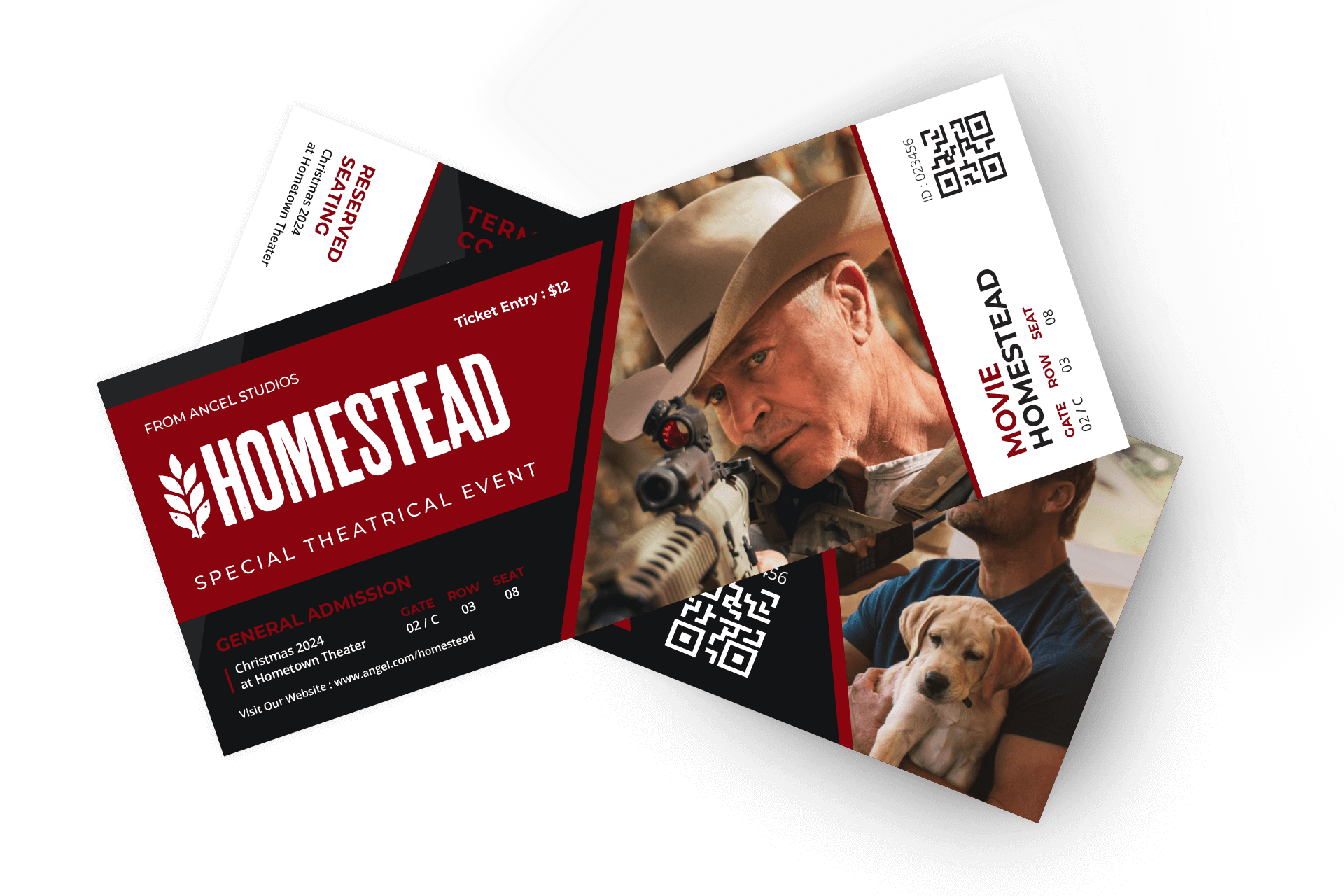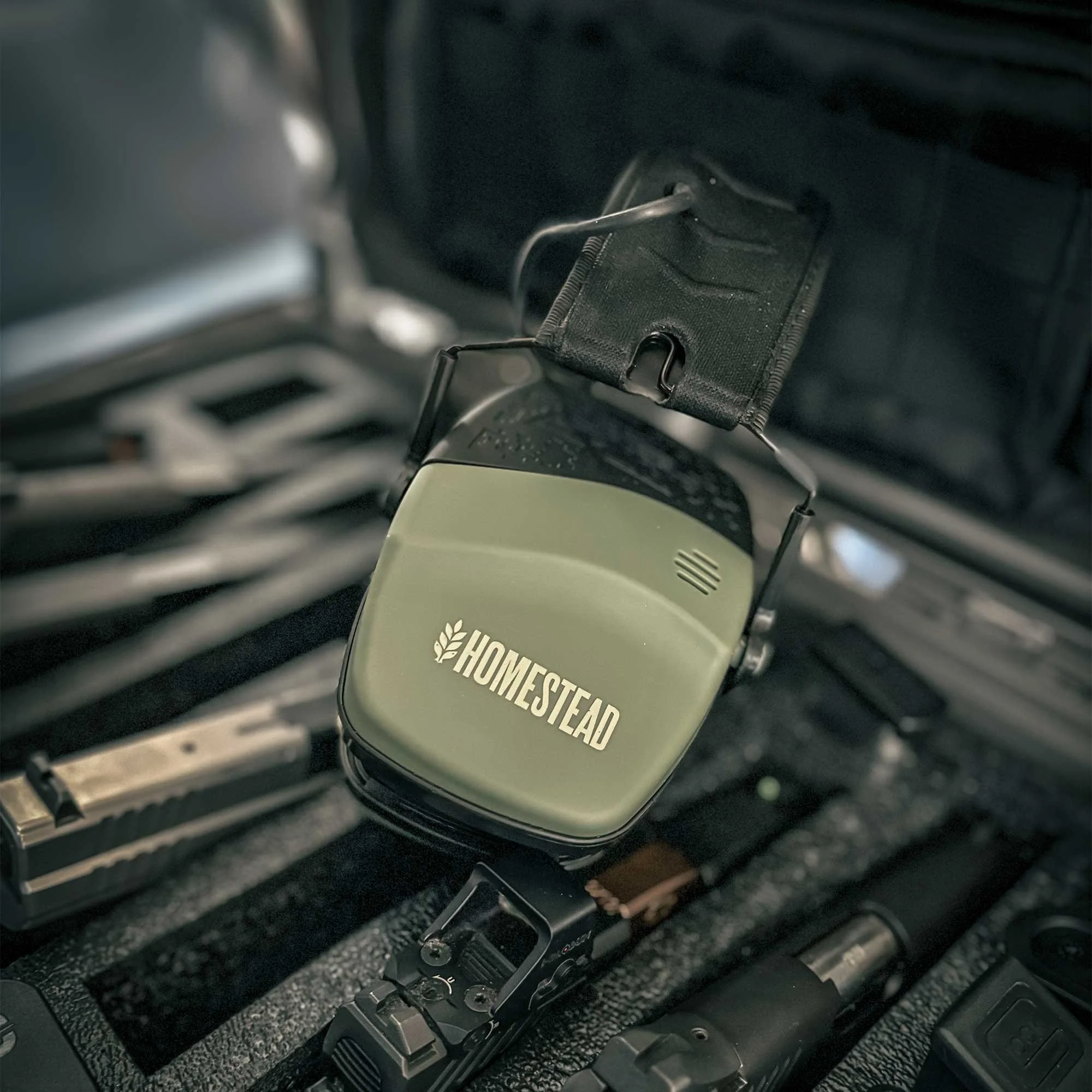
HOMESTEAD: FAMILY SURVIVAL | EPISODE 6
Practice makes Prepped
When it comes to preparedness, it’s easy to talk the talk. But to truly be prepared, you have to walk the walk.
In this episode, some of our Homestead actors get a crash course in gun safety and the muscle memory their body needs in high-stress situations. You’ve got to put in the reps when it comes to necessary skills.
Along the way, Jason experiments with what it takes to make a terracotta watering system from scratch. Kristin Nobles explains the benefits of milling grain at home, and we get some exciting looks at behind-the-scenes footage from the Homestead movie.
Take Control of Your Flour: Why Mill Your Own Grain?
Most store-bought flour is processed for shelf life—not nutrition. By the time it reaches your kitchen, it’s often stripped of the vital oils, fiber, and nutrients that make wheat so valuable in the first place. When you mill your own grain, you unlock the full flavor, texture, and health benefits that fresh flour offers. It’s the difference between just getting by and truly nourishing your family.
Freshly ground flour retains all parts of the wheat berry—bran, germ, and endosperm—delivering more fiber, more vitamins, and a richer, nuttier taste. It also gives you total control over your ingredients, so you can skip the additives and tailor your flour blends to exactly what you need, from hearty loaves to tender pastries.
Know Your Wheat: Picking the Right Grain for the Job
Not all wheat is the same—and knowing the difference will take your baking to the next level.
Hard Red Wheat is the classic choice for traditional whole wheat bread. It’s high in protein and gluten, giving your loaves structure and a bold, nutty flavor. If you love rustic artisan bread or rolls with chew and heartiness, Hard Red is your go-to grain.
Hard White Wheat offers the same protein power but with a lighter color and milder taste. It’s ideal for sandwich bread or anyone transitioning from white flour to whole grain, especially kids. You get the nutrition of whole wheat without the bitterness sometimes found in red wheat.
Soft White Wheat is lower in protein and perfect for delicate baked goods like muffins, pancakes, cookies, and cakes. It creates a soft, tender crumb and is often used for pastries that don’t need the elasticity of bread dough.
Did you know you can get just the right flour for your project by mixing grains together? Experiment and find what works best for you!
Whether you’re baking daily bread or weekend treats, milling your own wheat allows you to choose the right grain for the right job—and enjoy flour that’s as fresh and flavorful as it gets.
MAKE IT GRAIN!
1 - TREAT ALL FIREARMS AS IF THEY ARE LOADED
Always assume your firearm is loaded, even if you have previously checked it. Never take anyone’s word that a firearm is unloaded. Always check yourself with the muzzle pointed in a safe direction and your finger outside the trigger guard away from the trigger.
2- NEVER POINT THE MUZZLE AT ANYTHING YOU ARE NOT WILLING TO DESTROY
Always point the muzzle in the safest direction possible, away from yourself and others—where, if the gun were to accidentally fire, it wouldn’t damage or injure anyone or anything.
3- KEEP YOUR FINGER OFF THE TRIGGER UNTIL READY TO FIRE
This means keeping your finger outside the trigger guard until you have your sights aligned on the target.
4- ALWAYS BE SURE OF YOUR TARGET AND WHAT’S BEYOND IT
This includes making sure nothing is behind your target, or traveling into your line of fire that you don’t want to destroy. Remember: you’re responsible for your bullet from the time it leaves your gun until the time it stops—and all bullets stop somewhere.
The 4 Firearms Safety Rules
“The ultimate prepper irrigation system”
– Dean Sopher | Arkopia Farm & Freeze Dry
Olla watering systems are traditional irrigation tools that can be highly beneficial for a homestead in several ways:
Water Efficiency: Ollas are porous clay pots that are buried in the ground near plants. They slowly release water directly to the root zone, minimizing evaporation and runoff. This ensures that plants receive a consistent and efficient water supply.
Labor Saving: Once the Ollas are installed, they can be “set-it-and-forget-it as they deliver water based on plant needs. This reduces the need for manual watering, saving time and labor throughout the growing season.
Drought Resilience: During dry periods, Ollas help maintain soil moisture levels, supporting plant health and productivity. This is crucial for homesteads in arid or drought-prone areas.
Soil Health: By providing a slow and steady release of water, Ollas prevent soil erosion and nutrient runoff. They help maintain soil structure and fertility, promoting healthier plant growth.
Plant Health: Consistent moisture levels at the root zone reduce stress on plants, leading to better growth and higher yields. This is especially beneficial for vegetable gardens and planter boxes on your homestead or back-yard garden.
Eco-Friendly: Ollas are a sustainable and environmentally friendly irrigation method. They require no electricity to operate and can be reused year after year, reducing the environmental footprint of your irrigation system.
Versatility: Ollas can be used in various garden setups, including raised beds, container gardens, and traditional in-ground gardens. This versatility makes them suitable for any kind or size of homestead garden.

NOW STREAMING ON ANGEL.COM
Watch the Movie & Series
The Homestead movie and series is streaming now on Ange Studios via web, mobile app, and connected TV.
Meet Your Hosts
-

Sam Sheridan
PRODUCER & AUTHOR
-

Cherie Bolz
MASTER GARDENER
-

Jason Ross
AUTHOR & HOMESTEAD SHOWRUNNER












